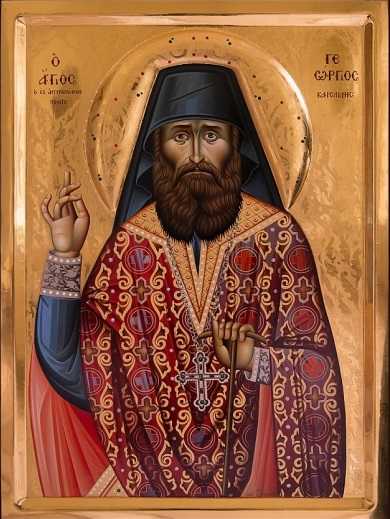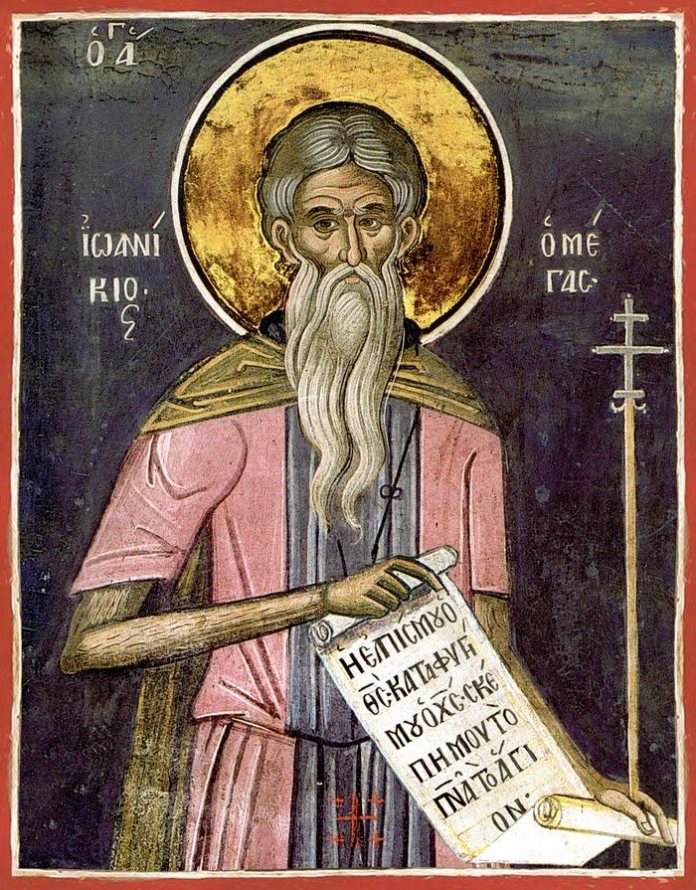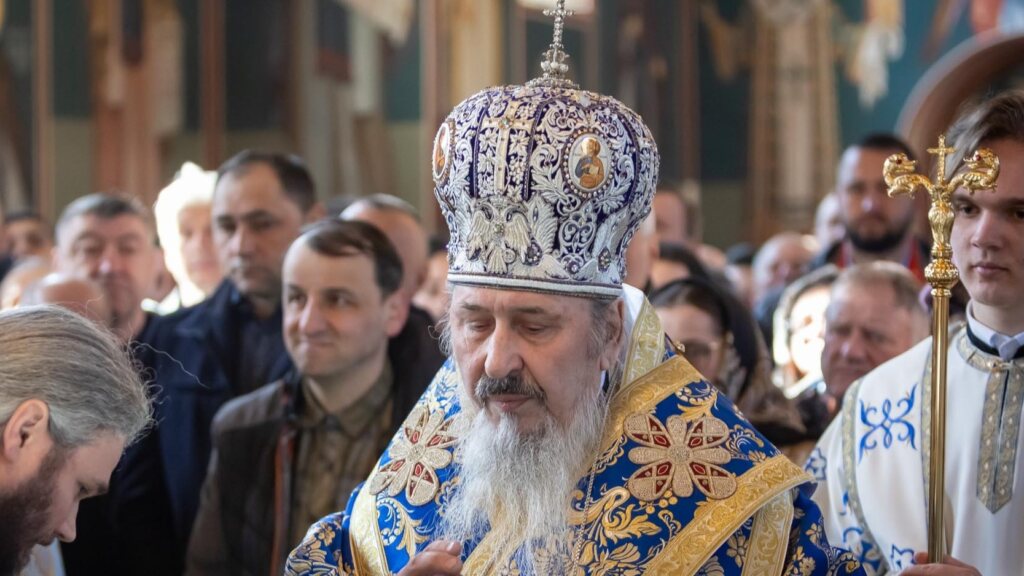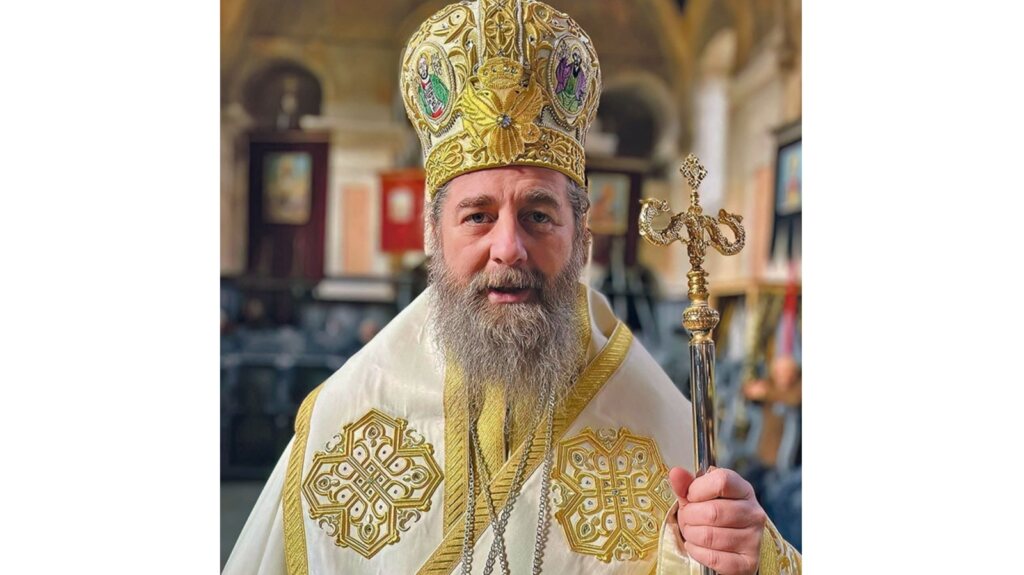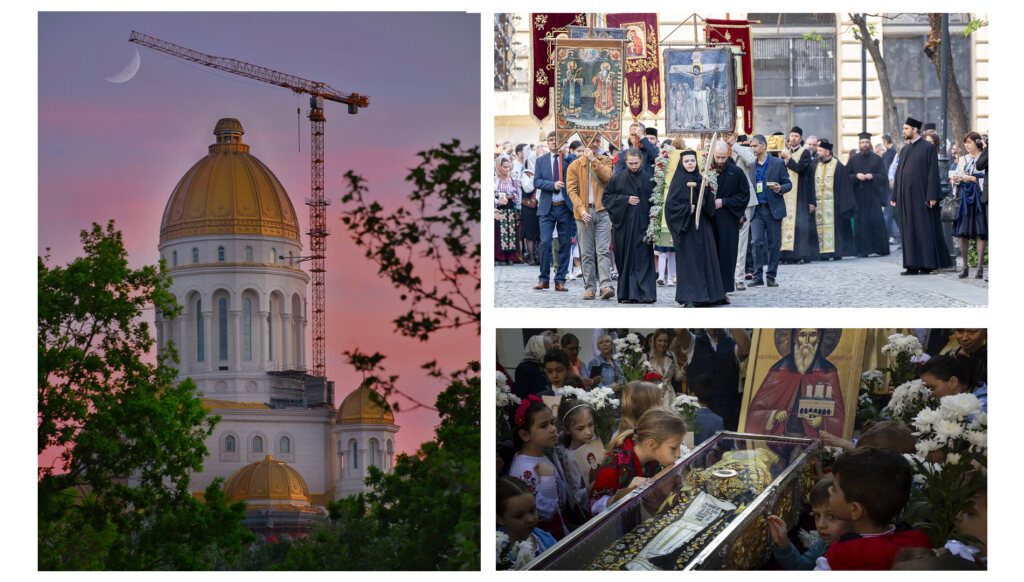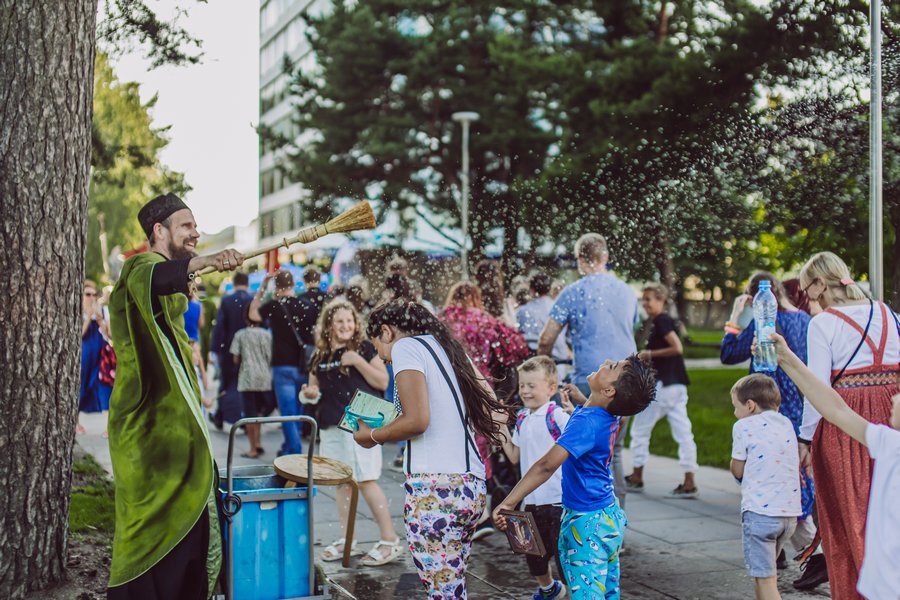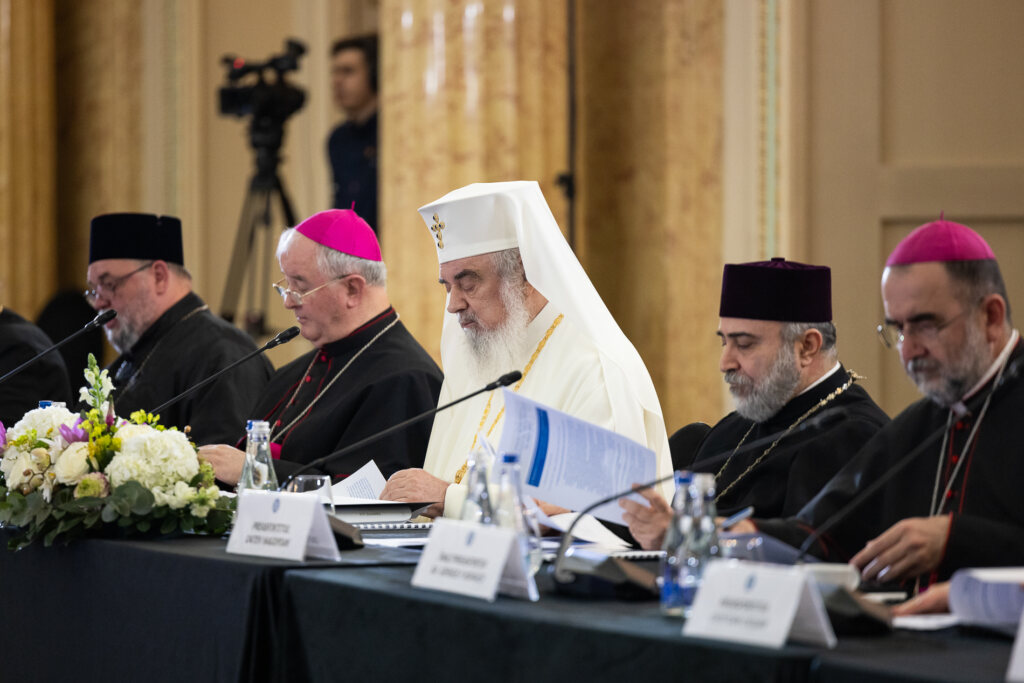Memorial Saturday
The Saturday before the Last Judgment Sunday, the Saturday of Pentecost and the first Saturday of November have been appointed by the Church for the remembrance of all our dead ancestors.
Since the time of the Holy Apostles, as St John Chrysostom testifies, days of remembrance have been observed. Such days can be traced back to around the 6th century, when the biblical readings during the church year were definitively fixed.
Saint Joannicius the Great
He was born in Bithynia in the year 752 in the village of Marikat. His parents were destitute and could not provide him even the basics of an education. From childhood he had to tend the family cattle, their sole wealth.
Love for God and prayer completely dominated the soul of the child Joannicius. Often, having shielded the herd with the Sign of the Cross, he went to a secluded place and spent the whole day praying, and neither thieves nor wild beasts came near his herd.
By order of the emperor Leo IV (775-780), a multitude of officials went through the cities and towns to draft young men for military service. Young Joannicius was also drafted into the imperial army. He earned the respect of his fellow soldiers for his good disposition, but he was also a brave soldier who struck fear in the hearts of his enemies.
Saint Joannicius served in the imperial army for six years. More than once he was rewarded by his commanders and the emperor. But military service weighed heavily on him; his soul thirsted for spiritual deeds and solitude.
Saint Joannicius, having renounced the world, longed to go at once into the wilderness. However, on the advice of an Elder experienced in monastic life, he spent a further two years at the monastery. Here the saint became accustomed to monastic obedience, to monastic rules and practices. He studied reading and writing, and he learned thirty Psalms of David by heart.
After this, commanded by God to go to a certain mountain, the monk withdrew into the wilderness. For three years he remained in deep solitude in the wilderness, and only once a month a shepherd brought him some bread and water. The ascetic spent day and night in prayer and psalmody.
After each verse of singing the Psalms Saint Joannicius made a prayer, which the Orthodox Church keeps to this day in a somewhat altered form, “The Father is my hope, the Son is my refuge, the Holy Spirit is my protection.”
By chance, he encountered some of his former companions from military service. The saint fled the wilderness and withdrew to Mount Kountourea to hide himself from everyone. Only after twelve years of ascetic life did the hermit accept monastic tonsure. The saint spent three years in seclusion after being tonsured.
Then he went to a place called Chelidon to see the great ascetic Saint George (February 21). The ascetics spent three years together. During this time Saint Joannicius learned the entire Psalter by heart. As he grew older, Saint Joannicius settled in the Antidiev monastery and dwelt there in seclusion until his death.
Saint Joannicius spent seventy years in ascetic deeds and attained to a high degree of spiritual perfection. Through the mercy of God the saint acquired the gift of prophecy, as his disciple Pachomius has related.
The Elder also levitated above the ground when he prayed. Once, he crossed a river flooded to overflowing. The saint could make himself invisible for people and make others also hidden from sight.
Once, Saint Joannicius led Greek captives out of prison under the very eyes of the guards. Poison and fire, with which the envious wanted to destroy the saint, did him no harm, and predatory beasts did not touch him.
He freed the island of Thasos from a multitude of snakes. Saint Joannicius also saved a young nun who was preparing to leave the monastery to marry; he took upon himself the agonized maiden’s suffering of passion, and by fasting and prayer, he overcame the seductive assault of the devil.
Foreseeing his death, Saint Joannicius fell asleep in the Lord on November 4, 846, at the age of 94.
Troparion — Tone 8
By a flood of tears you made the desert fertile, and your longing for God brought forth fruits in abundance. By the radiance of miracles you illumined the whole universe! O our holy father Joannicius, pray to Christ our God to save our souls!
Hieromartyrs Nicander, Bishop of Myra, and Hermas, the Presbyter

The Hieromartyrs Nicander, Bishop of Myra, and Hermas the Presbyter, were disciples of the holy Apostle Paul’s follower and fellow ascetic, the holy Apostle Titus of the Seventy (August 25), and they were ordained by him to the priesthood.
Living the ascetic life amid incessant pastoral works, the saints converted many pagans to Christ. For this they were arrested and brought before the city prefect, Libanius. Neither flattery nor threats swayed the holy martyrs to renounce Christ. Then Libanius gave orders that they be tortured.

The saints endured fierce and inhuman torments: they were tied to horses and dragged over stones, their bodies were raked with iron hooks, and they were cast into a hot oven. The Lord helped them endure things that a mere man by his own strength could not endure. Towards the end, iron nails were hammered into their heads and hearts. They were thrown into a pit, then covered over with earth.
Troparion — Tone 4
In your manner a participant, / and in your throne a successor of the Apostles, / you discovered action an entrance into visions, / O inspired one of God. / Therefore teaching the Word of truth, / you suffered for the faith even unto blood. / O Bishop and Martyr Nicander, pray to Christ God that our souls may be saved!
Venerable George, the confessor of Drama
He was born in 1901 in the city of Argyropolis in the region of Pontus (today’s Gümüșhane, Turkey), the son of two pious Christians, named Savva and Sophia Karslides.
He received the name of Athanasios at the Holy Baptism. At a young age he remained an orphan of both parents, and was raised by his elder brother and sister, and by his grandmother on his father’s side.
After the death of his grandmother, who offered him as a blessing an icon of the Theotokos, which he kept his entire life, he left together with his grandfather from his hometown to Erzurum (Turkey), and then to Tbilisi (Georgia). Full of divine love, young Athanasios entered the community of the Georgian Monastery New Athos.
There he studied Georgian language, but he especially laboured to acquire obedience, humbleness, patience, vigilance and prayer. On 20 July 1919 he received the monastic tonsure with the name of Symeon. After a short while, he was imprisoned and cruelly tortured by the atheists. In 1923, he was freed and moved to Sukhumi (Abkhazia). On 08 September 1925, he was consecrated a priest by a Georgian hierarch, who changed his name into George.
Venerable George left to Greece in 1929 and settled in the village of Sipsa (today Taxiarches), next to Drama, where he developed a rich spiritual activity among the faithful, whom he drew close to the Church and guided especially to the Holy Mystery of Repentance (Confession), to which he offered particular importance. In 1936 he travelled as a pilgrim to the Holy Land, filled with the longing to see the places where Christ our Lord wrought the salvation of the world.
After returning to Sipsa, in 1939, Venerable George decided to build a monastery dedicated to the Ascension of the Lord, with a small church and some dwellings.
In 1959, he foresaw his upcoming end, notifying his close disciples about it several times. In the very prime of morning, on November 04, after praying in front of the icon of the Theotokos, saying the prayer “O blessed Theotokos, open the doors of compassion to us”, Venerable George the Confessor commended his soul in the hands of our Saviour Jesus Christ. After three days, the uncorrupted body of Venerable George was buried next to the monastery founded by him, by Metropolitan Phillip of Drama.
Numerous healings and wondrous appearances occurred after the passing to the Lord of Venerable George. His relics full of special fragrance were discovered on 09 February 2006 by His Eminence Pavlos, Metropolitan of Drama.
His canonization was made by the Ecumenical Patriarchate of Constantinople on 18 March 2008, with feast day November 04th, the day of his passing to the Lord.
Troparion, tone 5,
Let us the faithful honour with hymns Venerable George, the founder of the honourable Monastery of the Ascension, the teacher of the prayer of the heart, of humbleness and vigilance, as a new boast of the Confessors, crying: Protect by divine support, o Passion-bearer, all those who pray to you!
Tr by oca.org
